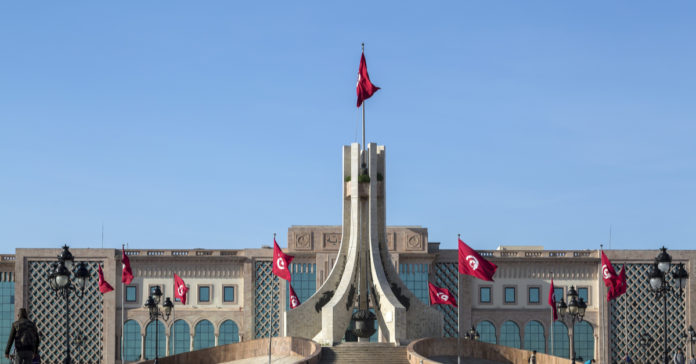Veteran Arab journalist Abdel Bari Atwan explains why the political explosion that has just taken place in Tunisia was inevitable.
After a prolonged period of political tension which led to a state of paralysis in most, if not all, institutions of the Tunisian state, Tunisian President Kais Saied decided to take the initiative, activate Article 80 of the constitution and withdraw power from the government, before assuming executive power in the country.
This sudden move came as a shock to his political opponents, especially in the Ennahda movement and the Heart of Tunisia Party, the two largest parties in the House of Representatives (Parliament), which considered it an illegal step that perpetuates one-man rule.
But there were also demonstrations in support of the “independent” President who does not belong to any political party.
With a state of congestion and paralysis that has prevailed in Tunisia over the past six months, and the political and media clashes that have taken place, plus the rebellion by Prime Minister Hicham Al-Machichi against the presidential palace, this situation could not have continued, especially since the burden of the people increased after the outbreak of the COVID-19 epidemic.
So with corona and the exacerbation of the economic crisis, the explosion was a matter of time.
President Saied has the upper hand
Subscribe to our newsletter and stay updated on the latest news and updates from around the Muslim world!
President Saied has managed the crisis intelligently, playing the role of the oppressed president and quelling anger in front of Tunisian public opinion. He waited for the state of anger and popular resentment to reach its climax, and his opponents were lulled into thinking he was a weak party.
But Saied turned the tables on everyone, especially by removing the “dissenting” Ennahdha Prime Minister who was the basis of the crisis in the eyes of many, and freezing parliament’s work rather than dissolving it.
President Saied’s “coup” has the support of the security and military institutions; it has the support of the Tunisian Labour Confederation, one of the most influential, independent and effective political arms in the country; and it will be happy that tens of thousands of Ennahdha supporters did not take to the streets as expected.
Perhaps it is still too early to speculate on the direction the country might be heading in the coming period. And the possibilities of a clash between the President’s supporters and opponents can still not be excluded unless everyone resorts to wisdom and prudence.
But President Saied’s strengths lie in his independence, his clean hands, and his winning of 73 percent of the votes in the recent presidential elections, without affiliation or leadership of any political party. Moreover, most of his supporters were young people, in addition to his categorical rejection of normalisation with the Israeli occupation state.
Uncertain future
We do not know what the coming days hold for Tunisia, but what we do know is that the Tunisian people are fed up with a Parliament that has turned into a boxing arena, a government that is leading the country to bankruptcy, and a collapsing health system.
However, I am confident that the Tunisian civil state, which came as the fruit of an honourable popular revolution in 2001, will eventually triumph, and we do not rule out a quick encirclement of the crisis, and the formation of a new consensus government that turns the page on the previous failed government, and puts the interests of Tunisia above all stakeholders.
What is certain is that Tunisia has entered a new, different phase, the foundations of which will be based on the ruins of the previous painful phase, and it will never go back, because the alternative is chaos and a failed state.
This article first appeared in Arabic in Raialyoum.




















